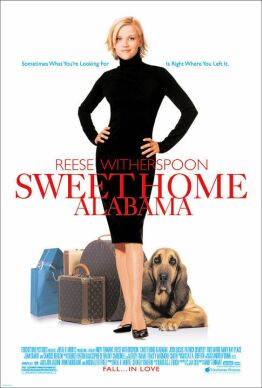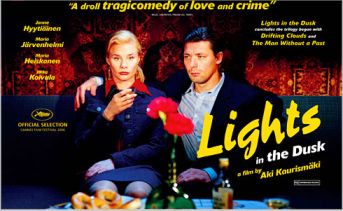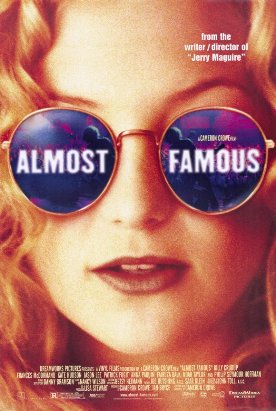Sweet Home Alabama
Sweet Home Alabama is a mess, but a curious one. For a start, Candice Bergen does a turn as a hard-charging mayor of New York with a glamorous, J.F.K. Jr.-style son called Andrew (Patrick Dempsey) — clearly as much Democratic royalty as Andrew Cuomo, whom he slightly resembles — yet the mother, and to a lesser extent the son, turn out to be unsympathetic characters. “I will not allow the future president of the United States to be humiliated by some psycho Daisy Mae!” screeches mom as her Andrew’s intended, the impossibly young yet wildly successful couturier Melanie (Reese Witherspoon), rejects him for the sturdy but rough-hewn rustic, Jake (Josh Lucas).
So the Democrats are supposed to be the bad guys?
Well, sort of. Yet when Andrew proposes to Melanie, the occasion is about as romantic as it could well be. As a surprise, he takes her into Tiffany’s after hours and, while the entire sales staff brought in just for the occasion proffer to her alone the establishment’s entire stock of diamonds, he says to her, “Pick one.” This, mind you, even though we know from the start that she is meant to end up with the rustic. What a waste of a dream engagement! Then, as Melanie leaves, ostensibly to inform her parents in Alabama of her engagement but really to complete her divorce from the rustic (do you see where this is going?), Andrew wonders if the folks at home will mind that he is a Yankee. “That,” she says. “And a Democrat.”
So the Republicans are supposed to be the good guys?
Well, yes and no. Actually, the Alabamians are a pretty unprepossessing lot, though we know that we are supposed to like them better than the New Yorkers. And that’s the problem with the film as a whole, namely that its theory and its practice are completely at odds. The thing is set up, that is, so that the city folk must appear rude and arrogant and patronizing while the country folk are earthy, colorful and real. Melanie is obviously supposed to shed her corrupt and artificial city ways in returning to her roots and Jake, her childhood beau. But even though the plot follows the blueprint faithfully, everything else in the film belies it. Tell us why again we’re supposed to want her barefoot and pregnant in Pigeon Creek, Alabama, wearing the Jaclyn Smith collection, instead of designing her own line, the most exciting thing in haute couture, and growing rich?
You or I might be able to think of some good reasons to prefer the former to the latter, but the movie cannot — apart, that is from the not-quite obviously superior charms of Jake and his coon dog Bryant (Bryant’s companion, Bear, is recently deceased). There is no satisfactory explanation of why she left Jake in the first place. As best we can make out the sequence of events, she got pregnant by him, had an abortion against his wishes, then married him, then left him to realize her dream of being a rich designer in New York, then, having achieved everything she had given up so much to accomplish, came back to Pigeon Creek, Alabama, to give that up. It doesn’t help that these hints have to be pieced together from a lachrymose soliloquy over Bear’s grave in the town’s “coon dog cemetery.”
Melanie could of course be just a girl who doesn’t know what she wants — like her momma (Mary Kay Place), who one moment seems to push the claims of Diamond Andrew and escape from Pigeon Creek and the next to insist on the faithful Jake and her “roots.” Yet Miss Witherspoon, for all her obvious talents, does not project fecklessness and indecisiveness — even if by some tremendous suspension of disbelief we could imagine these qualities in someone who has made it to the top of the fashion world by her mid-twenties. On the contrary, the star is the only clear and unambiguous thing about the picture, and she is clearly and unambiguously a New Yorker to her fingertips.
For despite Miss Witherspoon’s own Southern origins, she is far too obviously the urbanite to have the time of day for down-home Jake and his country crafts in sculpted fulgurite. She we can imagine saying to momma, as Candice Bergen says in the picture, “Go back to your double-wide and fry something.” True, she brings a little New York enlightenment to hick-town when she outs the village’s lone homosexual, but the movie requires her to be Alabamian herself, rather than the metropolitan missionary of tolerance to the Alabamians. It and not she is the indecisive one, the Buchanan/Perot option in a red-and-blue world that will end up appealing to neither side of our national split personality.
Discover more from James Bowman
Subscribe to get the latest posts to your email.






